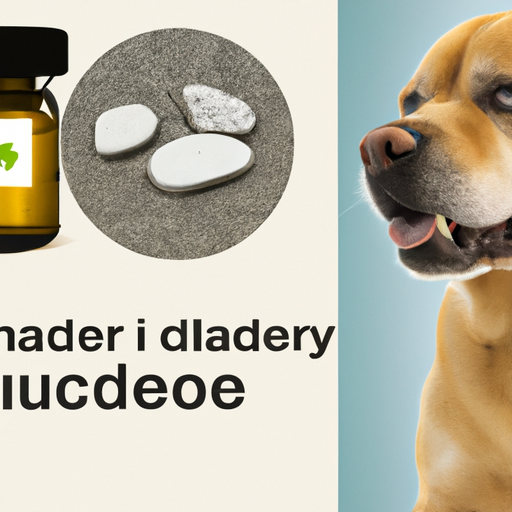As a caregiver, your main responsibility is to ensure that your beloved pets are healthy and happy. One common health issue in dogs is bladder stones. In this article, we will discuss what dissolves bladder stones in dogs.
Understanding Bladder Stones in Dogs
Bladder stones, or uroliths, are hardened mineral deposits that form in the bladder. These stones can vary in size, from as small as a grain of sand to as large as a golf ball. Dogs with bladder stones may exhibit symptoms such as frequent urination, blood in urine, or difficulty urinating.
Various factors can contribute to the development of bladder stones in dogs, including urinary tract infections, diet, and genetic predisposition. Understanding bladder stones is the first step in managing and preventing this painful condition.
The Role of Diet in Dissolving Bladder Stones
Your dog’s diet plays a significant role in managing bladder stones. Some types of stones can be dissolved with dietary changes, while others may require more invasive treatment.
Here are some dietary guidelines to help manage and dissolve bladder stones in dogs:
- Altering pH Levels: Certain types of stones, such as struvite stones, can be dissolved by making the urine more acidic. This can be accomplished through a special diet prescribed by your vet.
- Increasing Water Intake: Encouraging your dog to drink more water can help dilute the urine, reducing the concentration of minerals that can form stones.
- Reducing Mineral Intake: Diets high in certain minerals like calcium, phosphorus, and magnesium can contribute to stone formation. Your vet may recommend a special diet low in these minerals.
| Minerals | Recommended Intake |
|---|---|
| Calcium | Low |
| Phosphorus | Low |
| Magnesium | Low |
Non-Invasive Treatment Options
In addition to dietary changes, there are non-invasive treatment options available to dissolve bladder stones in dogs. One such method is known as “voiding urohydropropulsion”, which involves using a special technique to encourage the dog to pass the stone through urination.
Another non-invasive treatment is medication. Certain types of bladder stones can be dissolved using medications that alter the pH balance of the dog’s urine, making it less favorable for stone formation.
When Surgery is Necessary
While diet and non-invasive treatments can work for certain types of stones, others, such as calcium oxalate stones, cannot be dissolved and must be removed surgically. Surgery should be considered a last resort, as it can be stressful for both you and your dog.
FAQ’s
Q: Can bladder stones in dogs be prevented?
A: Yes, through a balanced diet and ensuring that your dog drinks plenty of water, you can reduce the risk of bladder stones.
Q: How long does it take for bladder stones to dissolve in dogs?
A: This largely depends on the size of the stone. Small bladder stones may dissolve within a few weeks, while larger stones may take several months.
Q: Are certain breeds more prone to bladder stones?
A: Yes, breeds such as Dalmatians, Bulldogs, and Yorkshire Terriers are more prone to developing bladder stones.
In conclusion, while bladder stones in dogs can be a serious concern, with the right information and guidance, they can be managed effectively. Always consult with your vet to determine the best course of action for your dog’s health.



